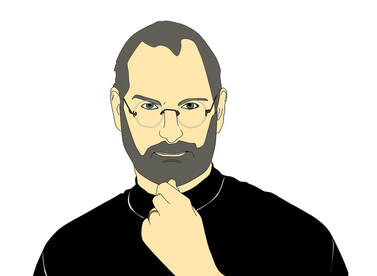
________________________________________________________________________
STEVE JOBS: In most companies, if you're new and you ask, you know, why is it done this way? The answer is: because that's the way we do it here. Or because that's the way it's always been done.
And, in my opinion, the largest contribution of much of this quality thinking is to approach these ways of doing things, these processes, scientifically, where there is a theory behind why we do them. There is a description of what we do. And most importantly, there is an opportunity to always question what we do. And this is a radically different approach to business processes than the traditional one: because it's always done this way. And that single shift is everything, in my opinion.
Because, in that shift is a tremendous optimistic point of view about the people that work in a company. It says, these people are very smart. They're not pawns. They're very smart. And, if given the opportunity to change and improve, they will. They will improve the processes, if there is a mechanism for it. And that optimistic humanism I find very appealing.
__________________________________________________________________________
My take-aways:
1. “Because that’s the way we do it here” or “because that's the way it's always been done” are not answers but starting points for discussion, clarifications, and improvements. It is possible that the way things have and are being done has proven to be best – if so, why? Juran's counterpart, W. Edwards Deming would argue the possibility for improvement is always there, even if it be ever so small. Questioning policies, procedures, ways of doing business are at the heart of continuous improvement.
2. Jobs echoes the last two assumptions of Douglas McGregor’s Theory Y from The Human Side of Enterprise (1960, p. 48):
“The capacity to exercise a relatively high degree of imagination, ingenuity, and creativity in the solution of organizational problems is widely, not narrowly, distributed in the population.”
“Under the conditions of modern industrial life, the intellectual potentialities of the average human being are only partially utilized.”
I agree with Jobs and McGregor. Most people could contribute much more to organizations if given a chance. I think this takes (1) a culture supportive of employee contributions and (2) leadership that values employees as assets, not costs.
______________________________
Image of Steve Jobs by waldryano. Obtained from https://pixabay.com/illustrations/steve-jobs-technology-illustration-1249665/
© John Ballard, PhD, 2023. All rights reserved.
Modified from my blog, 10/25/2012.
_________________________
Decoding the Workplace “Is this a must-have for managers and would-be managers? Yes.” Academy of Management Learning & Education, June, 2018. Available as ebook, hardback, paperback, audiobook, and audio CD. The best-selling audiobook, and CD, are narrated by Timothy Andrés Pabon.
 RSS Feed
RSS Feed